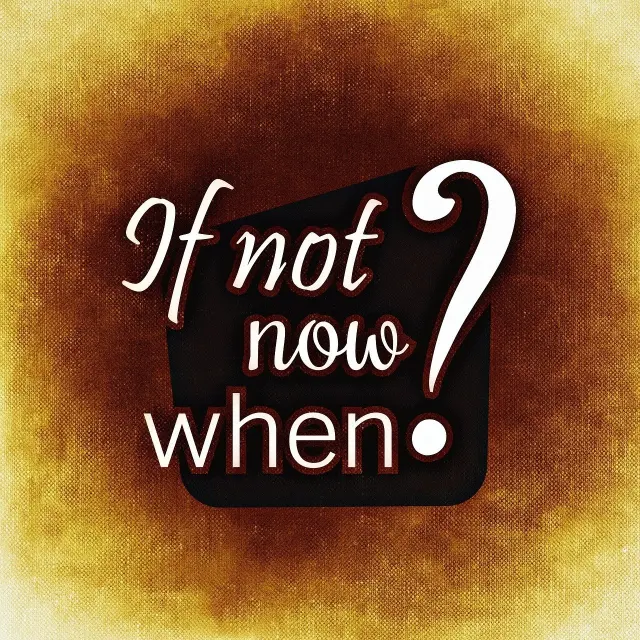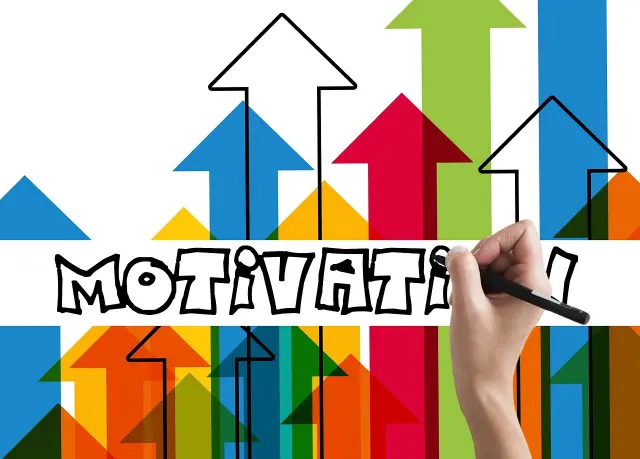Coaching and Psychology: two approaches, one goal
Table of contents
Coaching and Psychology ; Coaching or Psychology?
Over the centuries, the need to improve human development and personal performance has led to the development of two distinct but complementary fields: coaching and psychology. Although both approaches focus on the development of the individual, they use different methods and approach individual challenges and goals from different perspectives.
* coaching and psychology is an interesting and important topic that has been studied by many experts. Understanding the differences and similarities between coaching and psychological counselling can help us to better understand how these processes work and how they can be effective in leadership development.
The most important difference between coaching and psychological counselling is that coaching focuses more on the future, while psychological counselling focuses on the past and present. A coaching goal is to help people achieve their goals and improve their performance, while psychological counselling aims to help people understand their past and deal with their emotional problems.
Another important difference between coaching and psychological counselling is that coaching is usually shorter than psychological counselling. The coaching process usually lasts a few months, whereas psychological counselling can take years.
One of the similarities between coaching and psychological counselling is that both help people understand themselves and improve their performance. In both processes, people have the opportunity to examine their patterns of thinking and behaviour and learn how to be more effective in their work.
However, the link between coaching and psychological counselling is not limited to similarities. A coaching and psychological counselling is that both help people to understand themselves and improve their performance. In both processes, people have the opportunity to examine their patterns of thinking and behaviour and learn how to be more effective in their work.
Principles of Coaching and Psychology
* coaching and psychology are both concerned with understanding human behaviour and promoting change, but they approach this from different directions. Coaching focuses on the present and the future and builds strongly on individual strengths. Psychology, on the other hand, often focuses on past events and traumas and helps individuals understand and process these through therapeutic approaches.
Harnessing Human Potential through Coaching
Coaching is specifically focused on helping the individual to self-directed in achieving your goals. Coaches create an inspiring and supportive environment where clients can discover and fulfil their potential. Setting objectives, developing action plans and developing pathways for development are the essence of the coaching process.
Psychology and Deepening Emotional Understanding
A pszichológia másrészt szorosabban kapcsolódik az érzelmi és mentális egészséghez. A terápia során az egyén segítséget kap az érzelmi kihívások megértéséhez és kezeléséhez. A pszichológusok gyakran dolgoznak a múltbeli traumák, szokások és az érzelmi állapotok feldolgozásán, hogy elősegítsék a személyes fejlődést és a mentális jólétet.
Where do Coaching and Psychology meet?
Interestingly, coaching and psychology are increasingly coming together and inspiring each other. The field of so-called "psychological coaching" uses approaches that combine the power of coaching with a deeper understanding of psychology. In this way, individuals can not only move towards their goals, but also improve their emotional and mental health.
Towards a Healthier Self
* coaching and psychology are both highly valuable tools for personal development by means of. Coaching strengthens individual strengths and focuses on goals, while psychology provides a deeper understanding and helps you work through your past burdens. By combining the two approaches, individuals can embark on a developmental journey that develops both their emotional and action intelligence, achieving a healthier, more balanced self.
Combination of Both Spaces for the Full Picture
* coaching és pszichológiai elemek kombinálása egyre elterjedtebbé válik a személyes fejlődés terén. A coaching területén megjelenő pszichológiai szemlélet segít az egyéneknek az érzelmi intelligencia, a stress management and better management of emotional states At the same time, psychologists also recognise the power of coaching to bring about change and achieve goals.
Psychological Coaching: The Confluence of Two Worlds
The elements of psychological coaching or psychological coaching show that both areas can be effectively brought together. This approach does not only focus on problems, but also emphasises the need for development and progress. Psychological coaching professionals have specific tools to help improve an individual's mental and emotional state, while a coaching approach helps clients to move towards their goals on the road.
Emphasising Individual Needs
The combination of coaching and psychology also helps to focus on individual needs. Individuals can combine the benefits of both fields, following their own individual path, creating a unique development path that supports their emotional, mental and personal goals.
Conclusion: a unified approach to Human Development
In summary, the the combined use of coaching and psychology can enrich an individual's development path. Coaching reinforces action, goals and individual strengths, while psychology helps emotional intelligence and mental well-being. Flexible adaptation to individual needs enables individuals to gain a complete picture of themselves, facilitating long-term and profound change in all areas of their lives.
The relationship between coaching and psychology
Coaching and psychology are two closely related fields. Both are concerned with personal development, achieving goals and improving quality of life.
What is coaching?
Coaching is a process in which a coach helps a client to achieve their goals. A coaching during the coach asks the client questions, gives feedback, and gives the client exercises and practice. Coaching can help the client that:
- Know yourself and your strengths.
- Develop your skills and abilities.
- Solve your problems.
- Achieve your goals.
What is psychology?
Psychology is a branch of behavioural science that studies human behaviour, thoughts and emotions. Psychology can help people to:
- Understand their behaviour.
- Manage your emotions.
- Change their behaviour.
The relationship between coaching and psychology
The link between coaching and psychology lies in the fact that both aim at personal development, the achievement of goals and the improvement of quality of life. A coaching during the coach often uses psychological knowledge and techniques to help the client.
For example, if a client is having problems achieving their goals, the coach can help them identify obstacles to their goals and develop strategies to overcome them. A coach can also help the client to understand his or her own behaviour and emotions that may be hindering him or her in achieving goals.
The link between coaching and psychology is particularly strong in the following areas:
- Executive coaching: In executive coaching, the coach helps leaders to develop their leadership skills and become more effective in their work. A during executive coaching the coach often uses psychological techniques such as behavioural analysis, stress management and conflict resolution.
- Career coaching: In career coaching, the coach helps people find the right career and achieve their career goals. A career coaching during the coach often uses psychological techniques such as self-awareness, goal setting and decision-making.
- Life coaching: In life coaching, the coach helps people to live a better life. From life coaching the coach often uses psychological techniques such as stress management, coping mechanisms and positive thinking.
Conclusion: a unified approach to Human Development
In summary, the combination of coaching and psychology can enrich the individual's development path. Coaching reinforces action, goals and individual strengths, while psychology helps with emotional intelligence and mental well-being. Through flexible adaptation to individual needs, individuals can gain a complete picture of themselves, facilitating long-term and profound change in all areas of their lives.
Coaching and psychology are two closely related fields. Both are concerned with personal development, achieving goals and improving quality of life. A coaching during the coach often uses psychological knowledge and techniques to help the client.
GYiK/FAQ on the relationship between coaching and psychology
What is coaching?
Coaching is a process in which a coach helps a client to achieve their goals. During coaching, the coach asks the client questions, gives feedback, and gives the client exercises and exercises. Coaching can help a client to:
Know yourself and your strengths.
Develop your skills and abilities.
It solves your problems.
Achieve your goals.
What is psychology?
Psychology is a branch of behavioural science that studies human behaviour, thoughts and emotions. Psychology can help people to:
Understand their behaviour.
Manage your emotions.
Change their behaviour.
What is the relationship between coaching and psychology?
The link between coaching and psychology lies in the fact that both aim at personal development, the achievement of goals and the improvement of quality of life. In coaching, the coach often uses psychological knowledge and techniques to help the client.
For example, if a client is having trouble achieving his or her goals, the coach can help the client identify the obstacles to achieving those goals and develop strategies to overcome them. A coach can also help the client to understand his or her own behaviour and emotions that may be hindering him or her in achieving goals.
What are the main areas of the relationship between coaching and psychology?
The link between coaching and psychology is particularly strong in the following areas:
Executive coaching: In executive coaching, the coach helps leaders to develop their leadership skills and become more effective in their work. A during executive coaching the coach often uses psychological techniques such as behavioural analysis, stress management and conflict resolution.
Career coaching: In career coaching, the coach helps people find the right career and achieve their career goals. A career coaching during the coach often uses psychological techniques such as self-awareness, goal setting and decision-making.
Life coaching: In life coaching, the coach helps people to live a better life. From life coaching the coach often uses psychological techniques such as stress management, coping mechanisms and positive thinking.
Who is coaching good for?
Coaching is good for anyone who wants it:
Know yourself and your strengths.
Develop your skills and abilities.
It solves your problems.
Achieve your goals.
Coaching can be particularly good for people who:
They start a new career.
They face new challenges.
You need help with personal or professional development.

























